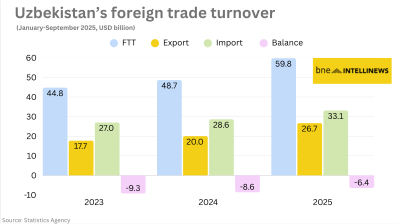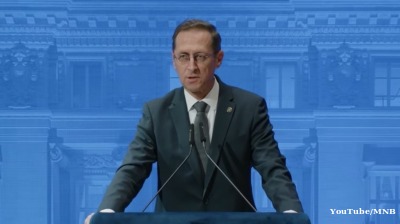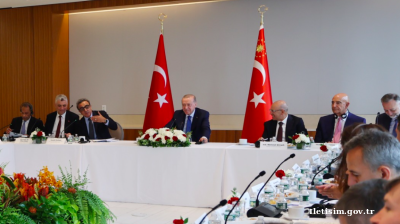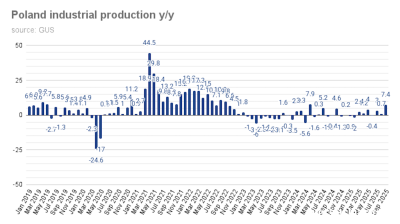Romania’s mergers and acquisitions (M&A) market (chart) recorded a total value of $6.6bn in 2024, reflecting a 5.9% year-on-year decline compared to the $7.1bn recorded in 2023, according to EY Romania.
The contraction was largely due to the absence of mega-deals, which accounted for significant activity in 2023, including the €1.3bn acquisition of Enel Romania and the €1.4bn acquisition of Profi Rom Food.
Excluding mega-deals, the market grew by 50% y/y to €3.6bn, driven by strong activity in the real estate, construction and energy sectors.
Transaction volume rose by 10% to 241 deals, highlighting increased investor appetite.
“While short-term volatility may impact deal appetite, Romania’s strategic sectors, particularly renewable energy, continue to attract strong investor interest. This positions the country for sustained long-term growth in M&A,” said to EY’s Iulia Bratu, partner and head of lead advisory.
Real estate, construction and energy remained the dominant sectors, accounting for 18.5% and 16.6% of total deals, respectively. Renewable energy investments nearly doubled, aligning with EU climate goals and positioning Romania as a key player in the sector. The technology, media, and telecommunications sector followed closely, with a 55.6% surge in media deals, while consumer products and retail saw modest growth of 5.4%, buoyed by a 267% rise in the beverages sub-sector.
The average deal size rebounded to $42mn ($40mn in 2023), close to 2021 levels, underpinned by Romania's stable market fundamentals.
Foreign investment in Romania surged, with inbound deals rising by 26.9% to 132 transactions, while domestic transactions fell slightly to 113. Notably, 91.3% of all transactions involved strategic investors, marking the highest share in six years.
The United States led inbound transactions with 13.6%, followed by Poland (8.3%) and France, Austria, and Germany (7.6% each). Despite this activity, transparency in deal disclosures hit a new low, with the value of 74.7% of transactions remaining undisclosed—far above the historical 65% average.
Data

Uzbekistan’s nine-month foreign trade nears $60bn
Export growth of 33% and import expansion of 16% y/y produce $6.4bn deficit.

Hungary’s central bank leaves rates unchanged
National Bank of Hungary expects inflation to fall back into the tolerance band by early 2026, with the 3% target sustainably achievable in early 2027 under the current strict policy settings.

Germany slowdown weighs on Lithuania’s export-driven manufacturing sector
Lithuania’s economy remains highly sensitive to the industrial cycle in Germany, its third largest trade partner.

Chobani yoghurt king Hamdi Ulukaya becomes richest Turk
Knocks Murat Ulker into second place in Forbes ranking as his company's valuation leaps to $20bn.




